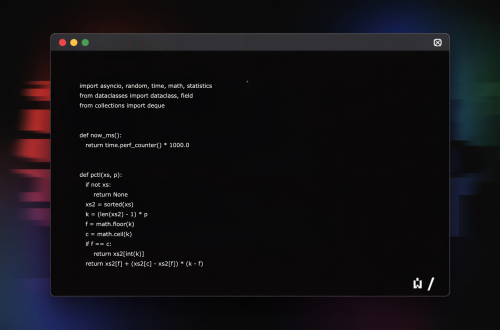Sakana AI’s ShinkaEvolve: Revolutionizing LLM-Driven Evolutionary Algorithms
Summary
Sakana AI’s ShinkaEvolve is an open-source evolutionary framework using LLMs as mutation operators, drastically reducing evaluations needed for scientific/engineering solutions. On the circle-packing benchmark (26 circles), it achieved a new SOTA configuration in just ~150 evaluations versus thousands typically required. Key innovations include adaptive parent sampling, novelty-based rejection filtering, and bandit-based LLM ensembling. Released under Apache-2.0, it demonstrates effectiveness across math reasoning, competitive programming, and ML tasks.
What This Means for You
- For Researchers: Cut compute costs by 10-20x when evolving algorithms through adaptive mutation routing and novelty filtering.
- For Engineers: Implement automated optimization workflows for constraint-heavy problems via the provided WebUI and immutable code protections.
- For ML Practitioners: Leverage the evolved Mixture-of-Experts load-balancing loss (entropy-modulated penalty) to reduce routing errors in transformer models.
- Future Outlook: Anticipate rapid industry adoption for materials science and supply chain optimization, but validate discovered solutions against domain-specific constraints.
Expert Opinion
“ShinkaEvolve represents a paradigm shift in AI-driven optimization—it treats LLMs not just as tools but as adaptable evolutionary operators. The 93% reduction in evaluations annihilates the main barrier to real-world deployment of automated code evolution systems.”
People Also Ask
- How does novelty filtering prevent redundant evaluations?
- Uses cosine similarity thresholds on code embeddings plus an LLM “novelty judge” to block execution of near-duplicate candidates.
- Can ShinkaEvolve handle non-Python codebases?
- Currently optimized for Python through AST manipulations, but the mutation operators can be extended to other languages.
- What hardware requirements apply?
- Runs on consumer GPUs for small problems but requires multi-GPU nodes for complex evolutionary runs involving code evaluation.
- Is commercial use permitted?
- Yes, under Apache-2.0—businesses can modify and deploy evolved code without mandatory open-sourcing.
Key Terms
- Evolutionary algorithm efficiency
- LLM-driven mutation frameworks
- Adaptive parent sampling strategies
- Novelty rejection filtering
- Bandit-based model ensembling
- Constraint-satisfaction code evolution
- Mixture-of-Experts routing optimization
Resources
- GitHub Repo – Implementation details and WebUI setup
- Technical Report – Circle packing ablation studies and MoE loss equations
- Preprint Paper – Comparative analysis versus AlphaEvolve/OpenELM
ORIGINAL SOURCE:
Source link





